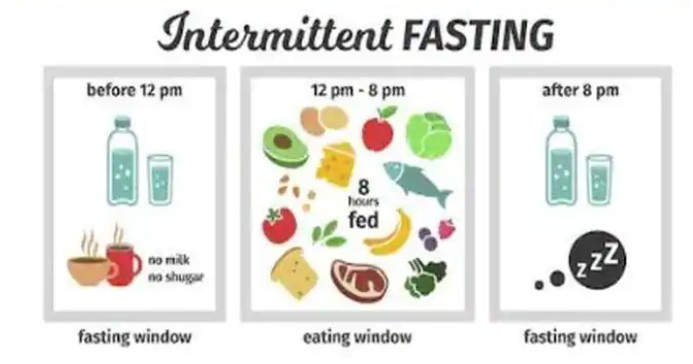Running News Daily
Running News Daily is edited by Bob Anderson. Send your news items to bob@mybestruns.com Advertising opportunities available. Train the Kenyan Way at KATA Kenya and Portugal owned and operated by Bob Anderson. Be sure to catch our movie A Long Run the movie KATA Running Camps and KATA Potato Farms - 31 now open in Kenya! https://kata.ke/
Index to Daily Posts · Sign Up For Updates · Run The World Feed
There’s New Research on Intermittent Fasting—Here’s What It Means for Runners
While it could take some trial and error, it may be worth experimenting to figure out if this eating plan works for you.
A small study of 23 runners suggests that while intermittent fasting can reduce body mass, it does not impact running performance.

That doesn’t mean runners shouldn’t give intermittent fasting a try—you just have to find the schedule that works best for you, which could take some trial and error.
If you notice your sleep quality, mood, digestive health, work focus, and overall feelings of wellbeing take a dip, this may not be the right eating plan for you.
Intermittent fasting has been highlighted for its advantages—studies show how this way of eating can affect metabolic health, cardiovascular function, and even longevity—but can it make a difference in your running performance? New research in Medicine & Science in Sports & Exercise suggests this type of time-restricted eating may have some benefits.
Researchers looked at 23 male runners who were assigned to either their usual dietary intake or eight weeks of time-restricted eating on a 16:8 schedule, which means they consumed all food within an eight-hour window each day. The remaining 16 hours also included sleep time.
All participants did an exercise test before and after the two-month timeframe, and also provided blood samples. Researchers assessed their running economy, maximal oxygen uptake, and glucose, insulin, and triglyceride concentrations.
They found that fasting resulted in reduction in body mass, but didn’t show differences in any other variables. Researchers concluded that the body mass loss was likely related to lower calorie intake in the time-restriction group, but that fasting didn’t change their overall running performance.
Does this mean if you want similar results, you should adopt the 16:8 strategy? Some experts say maybe—but their advice is to play around with different eating schedules first.
“There are a breadth of approaches for time-restricted eating, and you really do have to experiment to find the right fit for you,” Luiza Petre, M.D., cardiologist and assistant clinical professor at The Mount Sinai School of Medicine, told Runner’s World. She does intermittent fasting herself, and recommends the tactic to patients.
For example, in addition to 16:8 there are strategies like 5:2, which involve eating normally for five days of the week and practicing significant calorie restriction or fasting on the other two (non-consecutive) days of the week. Some people do better with a 1:1 approach instead, with calorie restriction or fasting every other day, or at the other end of the spectrum, with fasting one day a week.
“Try something for two weeks,” Petre said. “Pay attention to how you feel and especially how it might affect your energy levels and running performance. Ideally, jot it down so you can begin to pinpoint what helps you.”
Also take note of other factors like sleep quality, mood, digestive health, work focus, and overall feelings of wellbeing, added Jason Fung, M.D., author of The Complete Guide to Fasting.
“If you’re really struggling, then that’s not the plan for you,” he told Runner’s World. “Remember, just because it might work for everyone in your running group doesn’t mean you’re doing it wrong. It just means you need a different schedule.”
One caveat, Fung added, is that you need to make sure you’re eating normally within your non-fasting hours. The misstep some people make is thinking they need to “load up” during that time or eat less-than-healthy choices, which can result in a binge mentality. Instead, see it more as a tweak to your eating schedule than an overhaul, he suggested.
With that in mind, even if you decide not to do intermittent fasting at all, it’s likely the effort will make you pay more attention to what you eat and how those foods affect you, Fung added. That can be valuable intel as you continue to shift toward healthier eating habits that are tailored to your needs.
by Runner’s World
Login to leave a comment




